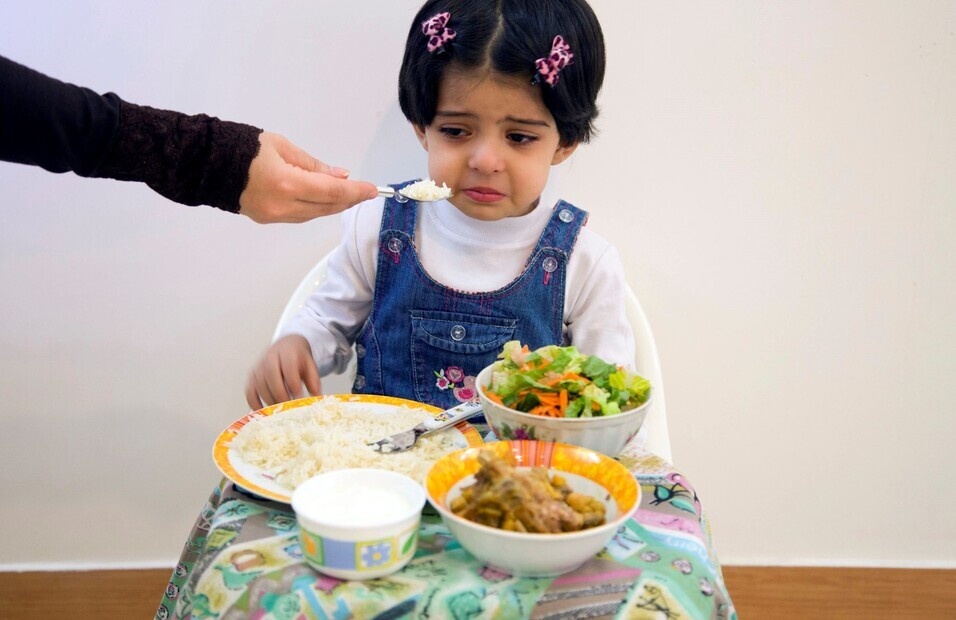

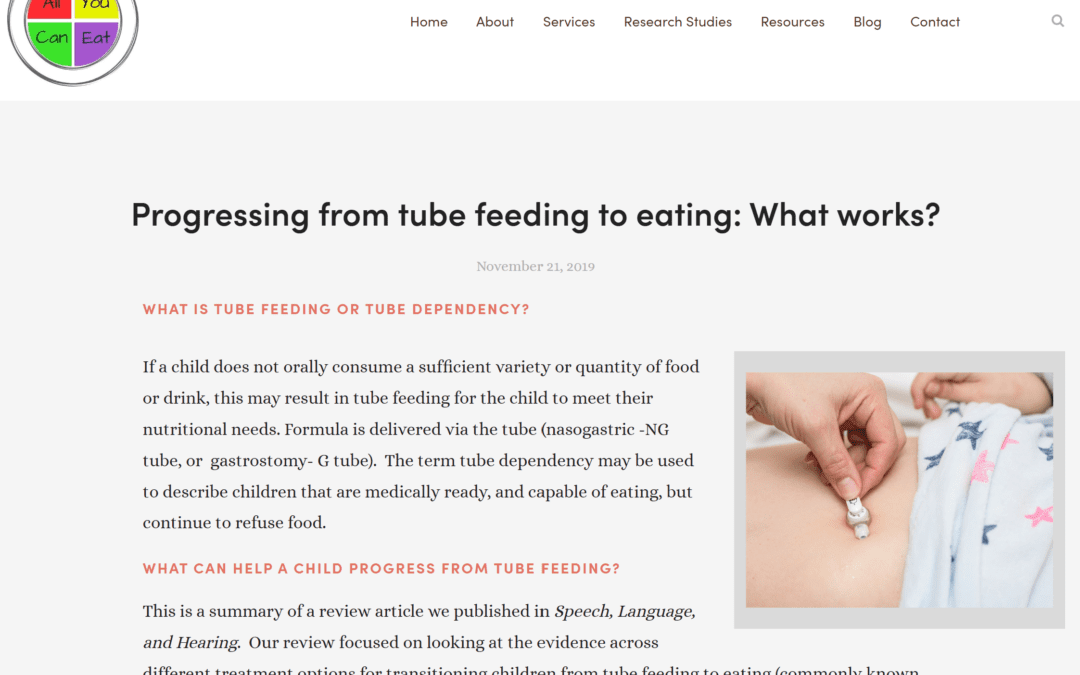
Progressing from tube feeding to eating (i.e., tube weaning) with paediatric feeding therapy: What works? by Dr. Sarah Ann Taylor
“Our review focused on looking at the evidence across different treatment options for transitioning children from tube feeding to eating (commonly known as tube weaning).” “Behavioural treatments reported significant gains in oral consumption and improvement in mealtime behaviours but there were less reports of children being tube weaned. Behavioural studies often involved children with very complex and severe feeding difficulties, and many had DD.” “A high level of treatment intensity is needed, at least over a few weeks. This involves multiple meals per day, over consecutive days.”
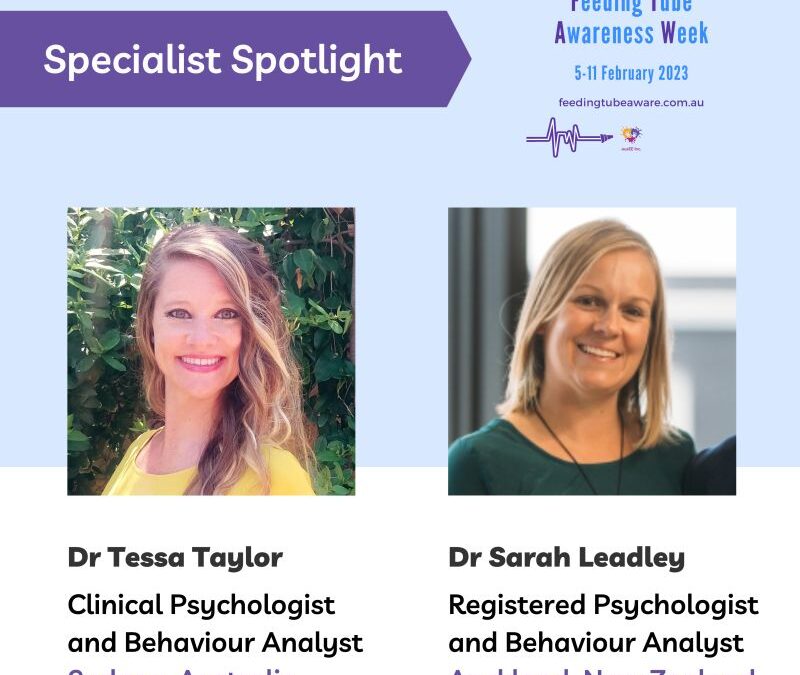
ausEE’s Feeding Tube Awareness Week: Specialist Spotlight
During last year’s FTAW 2022 Virtual Education Program, Dr Tessa Taylor and Dr Sarah Leadley presented their research on childhood feeding difficulties and experience with home-based interventions in Australia and New Zealand to help children with tube dependence learn to eat new foods and progress with feeding skills.
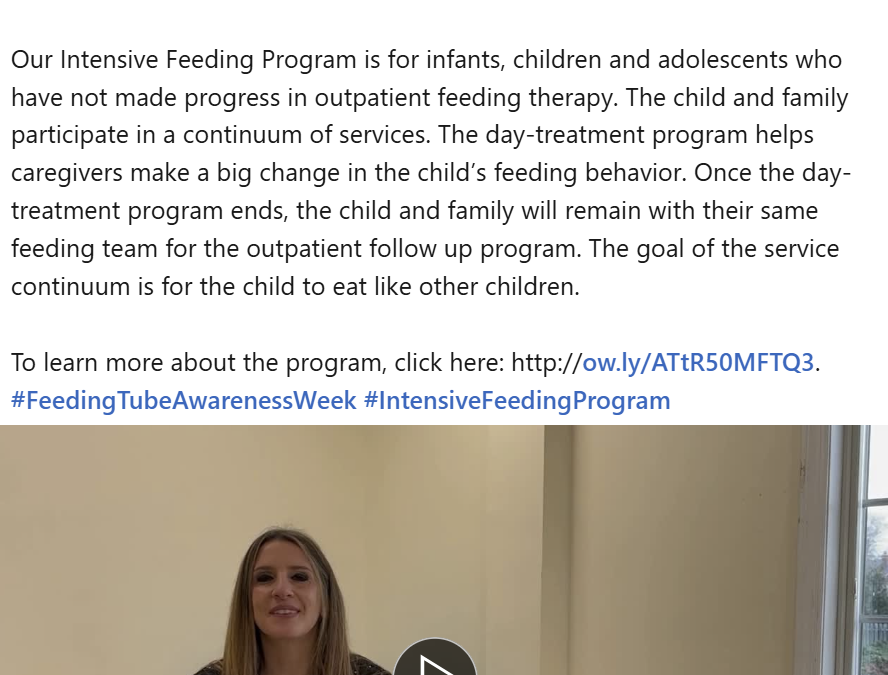
Dr. Kathryn Peterson video: Transitioning from tube feeding to eating
Dr. Kathryn Peterson, Children’s Specialized Hospital’s Director of Intensive Feeding Program Operations, is here to share how our Pediatric Intensive Feeding Program works with kids who are ready to transition off of tube feedings.
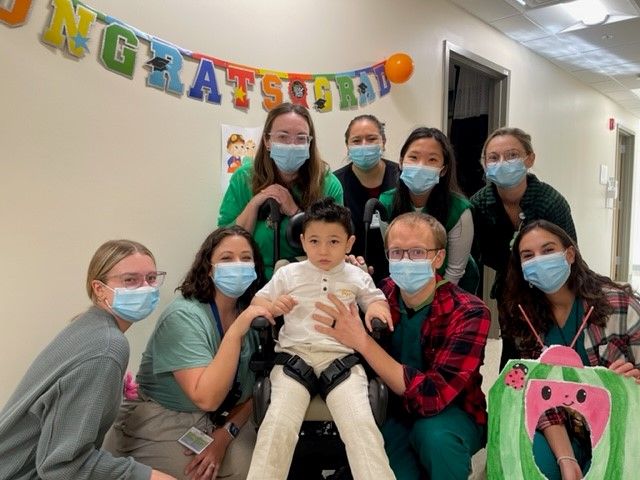
Feeding Tube Awareness Week: Success Stories from Dr. Kathryn Peterson
“The Dalai Lama noted that, “Genuine compassion is based on a clear acceptance or recognition that others, like oneself, want happiness and have the right to overcome suffering.”
Children have the right to overcome suffering–particularly when they are missing critical nutrients and sufficient calories–in a manner that leads to efficient and robust outcomes. … As the caregiver herself noted, delays to these obtained effects might have led to “an unknown amount of traumatic NG insertions, ER visits, hospital admissions, infections, surgeries, etc.”
“I’ve seen the feeding team work their magic to rid children of scurvy, avoid or remove feeding tubes, reduce failure-to-thrive, and decrease hospital admissions. To me, this is the epitome of being compassionate providers who mitigate the risk of trauma through effective intervention.”
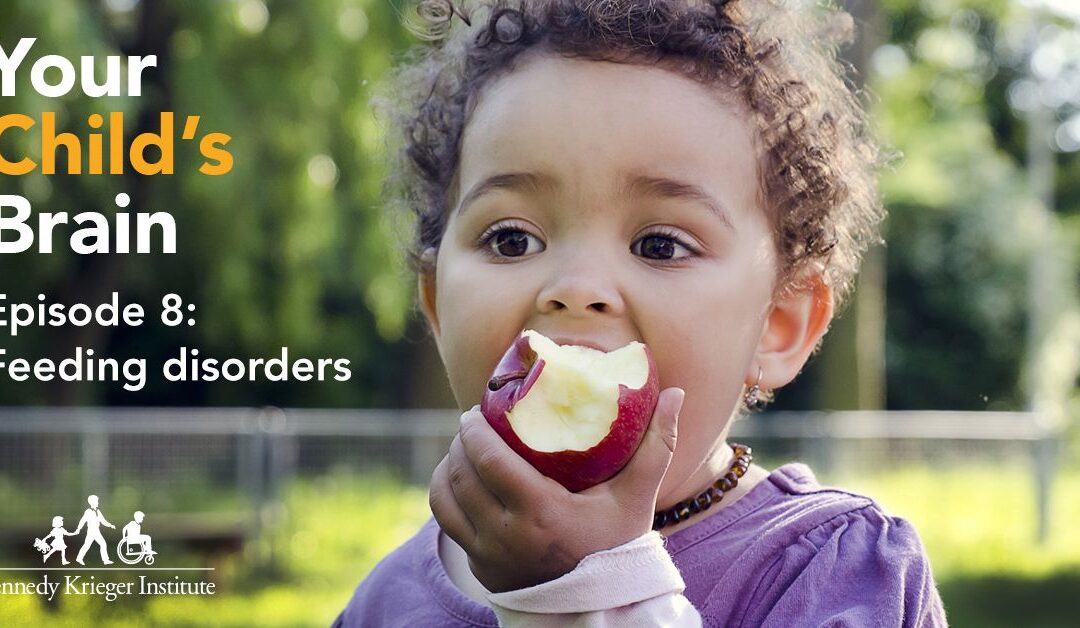
Johns Hopkins/Kennedy Krieger (KKI) Resources: Feeding Podcast with Dr. Girolami & Home Plate Blog
On this month’s episode of Your Child’s Brain #podcast on WYPR, Dr. Brad Schlaggar, President and CEO, and Dr. Peter Girolami, Director of the Pediatric Feeding Disorders Program, joined Dr. Richard Katz of Mt. Washington Pediatric Hospital to discuss #feedingdisorders in infants, toddlers, children and teens. Listen now: https://bit.ly/3B3YiVn #YourChildsBrain #PediatricFeedingDisorders
Also Join us on a Feedign Journey: Free articles from KKI’s Blog, Home Plate.
